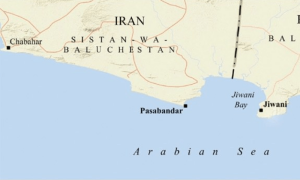ISLAMABAD: The first of three tourism corridors in Azad Jammu and Kashmir (AJK) has been opened. The new Azad Pattan-Rawalakot Highway links Poonch, Haveli and Kotli and serves as a direct link between 10 districts of the state.
“With the construction of the road, the AJK government expects an increase in the number of tourists in 2019. The number of tourists coming to AJK has seen tremendous growth already,” AJK Planning and Development Department Additional Chief Secretary Dr Syed Asif Hussain told media persons in Islamabad.
He said the major tourism corridor starts from Muzaffarabad up to Devi Gali in Tarrarkhal. The first corridor is in the Jhelum Valley and Poonch, the second in the Neelum Valley and the third in Kotli-Mirpur.
Water tourism facilities are being developed in the south, winter activities in the north and summer tourism and ice-skating facilities in Neelum’s Baan Valley will be developed, the official said.
The number of tourists to Neelum Valley increased to 1.5 million last year after the construction of the 76km Neelum Road, but tourists stop coming in after shelling by India.
To encourage more tourism in the Neelum Valley, a new road will be constructed to the east of the valley which will enable tourists to access the upper part of Neelum without any fear, Dr Hussain said.
The AJK government wants to promote tourism but also wants to protect eco-tourism, he said.
Dr Hussain added that the government has studied the Nepal and Bhutan models, and that Bhutan earns money and protects eco-tourism while Kathmandu earns money but its eco-tourism is badly affected.
The AJK government will be adopting the Bhutan model, he said.
Dr Hussain said that after the development of quality roads, there is now need for allied facilities for which the private sector will be engaged.
The Asian Development Bank (ADB) provided assistance for the construction of the 34km Azad Pattan-Rawalakot Road under the Flood Emergency Reconstruction and Resilience project, which was initiated in 2015 after massive floods in AJK in Sept 2014.
ADB officials told media persons that the bank had given a loan of $218 million for the project which was to be used to construct 25km of the road but the money was used to build 34km due to cost savings.
They said $25 million was saved due to the depreciation of the rupee against the dollar and that the money has been returned to ADB for utilisation in other projects.
So far, the officials said, ADB has helped in the construction of 204km of roads in AJK in addition to the reconstruction of damaged roads.
The new road will be handed over by the contractors to the ADB works and communications department by mid-Jan 2019, they said.
Project Coordination Unit Director General Mohammad Bashir Khan said the travel time from Azad Pattan to Kahuta Haveli has now been reduced by more than two hours.
He said there has been a massive increase in the volume of traffic and a reduction in freight charges. The new road is facilitating tourists to Banjosa, Tolopir, Lasdanna, Hajipir and Tatrinote crossing points.
Bio remediation methods were employed for the first time during the construction process in order to protect the road from landslides. The forest department and the communication and works department were involved in the construction process.
The former procured 2.2 million land stabilising saplings from 22 nurseries and planted them in specific locations of the road where it was most at risk of land sliding.
Published in Dawn, December 31st, 2018














































Dear visitor, the comments section is undergoing an overhaul and will return soon.